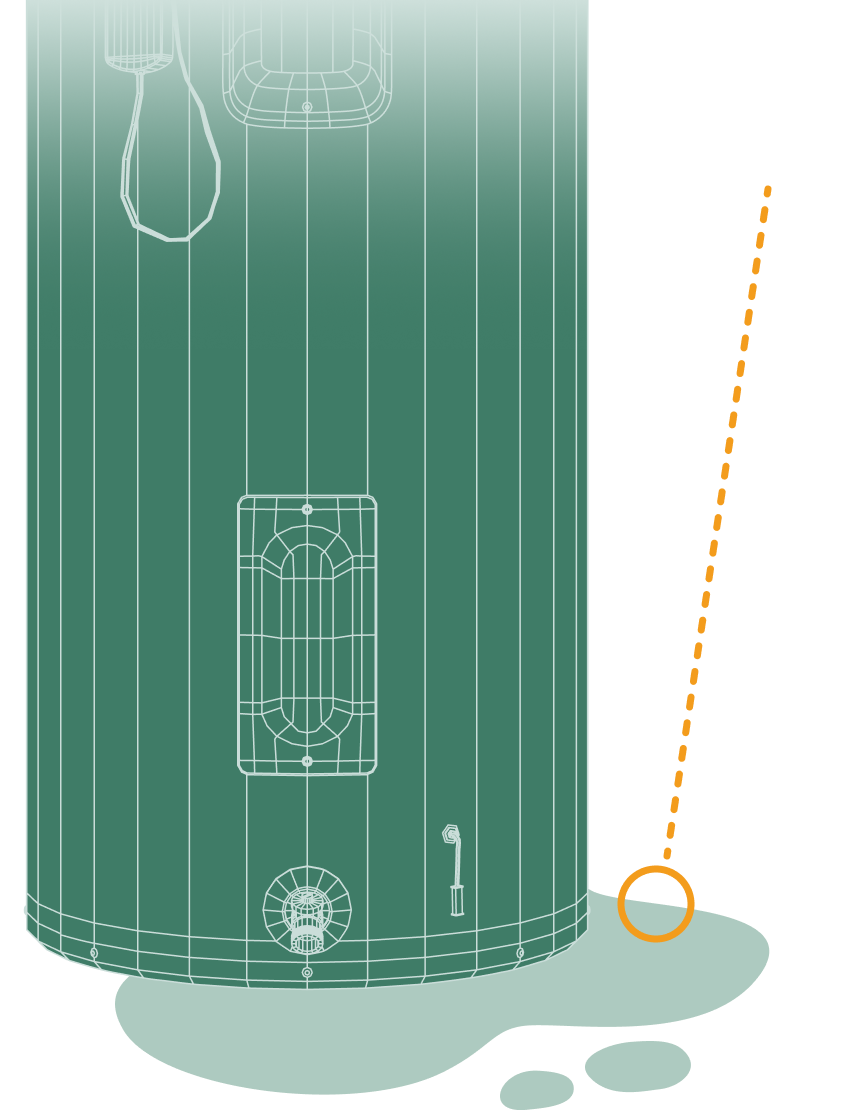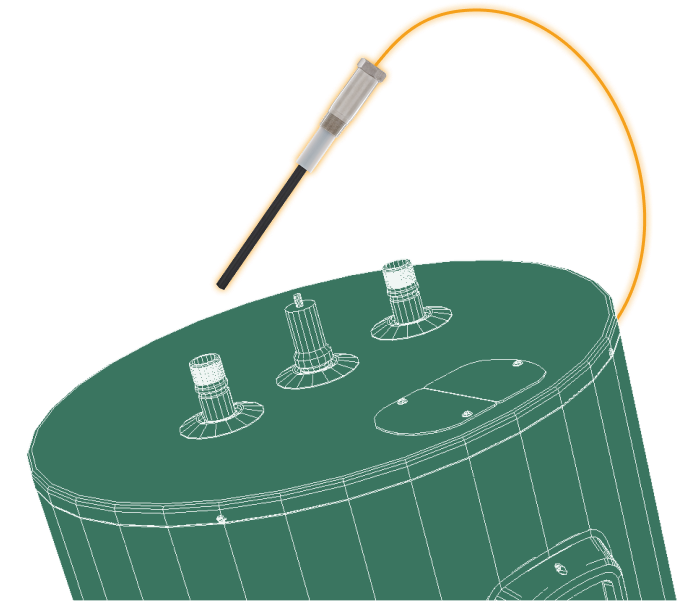Water Heater Leaking from Bottom

Corrosion is the most common reason that reduces water heaters’ lifespan and makes them leak. The factory-installed magnesium anode only protects your tank temporarily and needs frequent replacement to stay efficient.
If your actual water heater is leaking from the bottom, it is time for a new one and you should protect it properly with Corro-Protec. Our system provides a permanent layer of corrosion protection on the internal welds and weak points of the tank.
Water heaters have a limited lifespan, regardless of quality regulations for manufacturers. The vitrification process to protect the inside of the tank is often imperfect (or perfect for planned obsolescence) and magnesium anodes only last a few months or years before corrosion sets in.
If you change your original magnesium anode every few months or years, your water heater will last many years. However, nobody wants to go into a crawled space every year to work on their hot water tank.
That’s why we created Corro-Protec: our first-class anode combined with electrical current to provide optimal corrosion protection and double the life of your hot water tank.
What causes my water heater tank to leak?
Leaks in a water heater can be caused by corrosion of the tank. This is often due to the presence of magnesium anodes, which can corrode away and leave the tank vulnerable to leaks.
The water heater heats water in a closed and pressurized tank. This is the PERFECT mix for corrosion to take place and create an internal tank leak. Add a water treatment system to the equation and voilà, corrosion is happening faster than ever.
New manufacturing methods for water heaters were supposed to add years of service life by reducing corrosion, but it looks like these attempts are more about marketing than really changing the industry. Vitrification and sacrificial anode rod are both ways now used to try to reduce the corrosion inside your tank.
If you have a water heater that is leaking from the bottom of the tank, it is likely time to replace it. Water heaters also have a limited lifespan, and it is often necessary to replace them after a certain amount of time, especially when not protected adequately.





How could I prevent corrosion in my tank?
No matter what causes the corrosion in your water heater, the Corro-Protec Powered Anode Rod can stop this process in just a few hours.
Once the system is operational, the energy projected by the system will prevent corrosion for years to come! Your water heater will be protected and you won’t have to worry about this again. Please note that if your tank is leaking, you should install a powered anode rod as soon as you install your new tank.
What protection does my tank have?
Sacrificial anodes
First, sacrificial anodes – magnesium, aluminum, and zinc – are used to protect water heaters, but only last a few months in hard water and need to be replaced when 60% corroded.
To make sure this type of anode is working efficiently, you always need a proper one in place, otherwise, your water heater will be unprotected. If your tank is unprotected, corrosion will appear over time, then leak if the corrosion process is sufficiently advanced.
Vitrification
Second, vitrification is a process that manufacturers claim will extend the life of tanks. However, this process has been on the market for over 10 years and does not seem to be effective, due to defects during manufacturing, shaking when transported, and improper handling during installation.
Moreover, if you do not drain the limescale deposit regularly, the build-up sediment will cause cracking on this defense and the steel tank. As expected, when both defenses are down, corrosion will take place which will become substantial and be followed by leaks.
How to prevent my water heater from leaking?
To avoid leaks, prevent corrosion first.
Corro-Protec systems employ current to stifle corrosion in your water heater. This tiny bit of electricity going into your water heater will protect it for 20 years or more.
Corro-Protec is the most effective and powerful way to stop corrosion without requiring any maintenance or monitoring, thanks to our powered anode rod. With less than $2 worth of power per year to operate, Corro-Protec is the most cost-effective method of preserving your investment in the long run and preventing water damage.

Blog
AO Smith* Water Heaters: A Comprehensive Guide
Regarding water heaters, AO Smith is a trusted name in the industry. With a range of products designed to meet various needs, AO Smith offers […]
The Ultimate Guide to Heat Pump Water Heaters: Models, Costs, and Comparisons
Understanding Heat Pump Water Heaters Heat pump water heaters, also known as hybrid heat pump water heaters or heat pump hot water heaters, are popular […]


4.89/5 Based on 388 reviews
«I bought this over 10 years ago for our camp house. We had the smellist water. 10 years later still working like day 1»
Greg Mielke
«Well I was very skeptical about this powered rod but after I installed the rod , less than 36 hours my smell went away totally, wow could not believe this. It worked, thanks.»
Dave B